
Mary I, also known as Mary Tudor, and as "Bloody Mary" by her Protestant opponents, was Queen of England and Ireland from July 1553 and Queen of Spain as the wife of King Philip II from January 1556 until her death in 1558. She is best known for her vigorous attempt to reverse the English Reformation, which had begun during the reign of her father, Henry VIII. Her attempt to restore to the Church the property confiscated in the previous two reigns was largely thwarted by Parliament, but during her five-year reign, Mary had over 280 religious dissenters burned at the stake in the Marian persecutions.

The House of Tudor was a royal house of largely Welsh and English origin that held the English throne from 1485 to 1603. They descended from the Tudors of Penmynydd and Catherine of France. Tudor monarchs ruled the Kingdom of England and its realms, including their ancestral Wales and the Lordship of Ireland for 118 years with five monarchs: Henry VII, Henry VIII, Edward VI, Mary I and Elizabeth I. The Tudors succeeded the House of Plantagenet as rulers of the Kingdom of England, and were succeeded by the House of Stuart. The first Tudor monarch, Henry VII of England, descended through his mother from a legitimised branch of the English royal House of Lancaster, a cadet house of the Plantagenets. The Tudor family rose to power and started the Tudor period in the wake of the Wars of the Roses (1455–1487), which left the main House of Lancaster extinct in the male line.

Anne Boleyn was Queen of England from 1533 to 1536, as the second wife of King Henry VIII. The circumstances of her marriage and of her execution by beheading for treason and other charges made her a key figure in the political and religious upheaval that marked the start of the English Reformation. Anne was the daughter of Thomas Boleyn, 1st Earl of Wiltshire, and his wife, Lady Elizabeth Howard, and was educated in the Netherlands and France, largely as a maid of honour to Queen Claude of France. Anne returned to England in early 1522, to marry her Irish cousin James Butler, 9th Earl of Ormond; the marriage plans were broken off, and instead, she secured a post at court as maid of honour to Henry VIII's wife, Catherine of Aragon.
The Forsyte Saga, first published under that title in 1922, is a series of three novels and two interludes published between 1906 and 1921 by the English author John Galsworthy, who won the Nobel Prize in Literature. They chronicle the vicissitudes of the leading members of a large upper-middle-class English family that is similar to Galsworthy's. Only a few generations removed from their farmer ancestors, its members are keenly aware of their status as "new money". The main character, the solicitor and connoisseur Soames Forsyte, sees himself as a "man of property" by virtue of his ability to accumulate material possessions, but that does not succeed in bringing him pleasure.
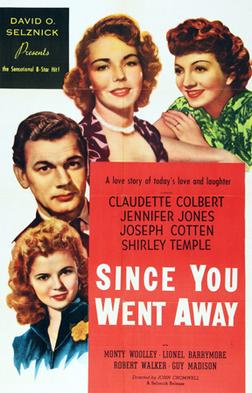
Since You Went Away is a 1944 American epic drama film directed by John Cromwell for Selznick International Pictures and distributed by United Artists. It is an epic about the American home front during World War II that was adapted and produced by David O. Selznick from the 1943 novel Since You Went Away: Letters to a Soldier from His Wife by Margaret Buell Wilder. The music score was by Max Steiner, and the cinematography by Stanley Cortez, Lee Garmes, George Barnes (uncredited), and Robert Bruce (uncredited).

Mary Dyer was an English and colonial American Puritan turned Quaker who was hanged in Boston, Massachusetts Bay Colony, for repeatedly defying a Puritan law banning Quakers from the colony. She is one of the four executed Quakers known as the Boston martyrs.
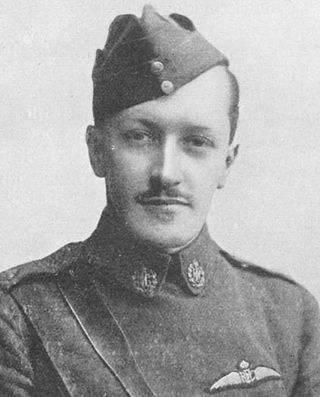
William Barnard Rhodes-Moorhouse VC was an English recipient of the Victoria Cross, the highest and most prestigious award for gallantry in the face of the enemy that can be awarded to British and Commonwealth forces. Rhodes-Moorhouse was the first airman to be awarded the VC.
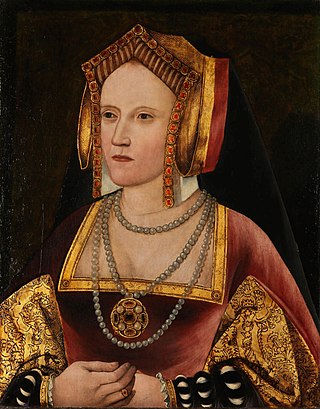
In common parlance, the wives of Henry VIII were the six queens consort of King Henry VIII of England between 1509 and his death in 1547. In legal terms, Henry had only three wives, because three of his marriages were annulled by the Church of England. However, he was never granted an annulment by the Pope, as he desired, for Catherine of Aragon, his first wife. Annulments declare that a true marriage never took place, unlike a divorce, in which a married couple end their union. Along with his six wives, Henry took several mistresses.
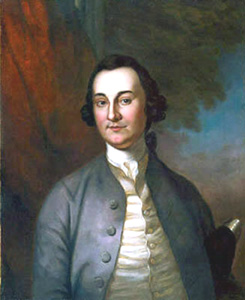
George Plater III was an American planter, lawyer, and statesman from Saint Mary's County, Maryland. He represented Maryland in the Continental Congress from 1778 to 1780, and briefly served as the sixth Governor of Maryland in 1791 and 1792.

Ordeal by Innocence is a work of detective fiction by British writer Agatha Christie, first published in the UK by the Collins Crime Club on 3 November 1958 and in the US by Dodd, Mead and Company the following year. The UK edition retailed at twelve shillings and sixpence (12/6) and the US edition at $2.95.

John Tilley and his family were passengers on the historic 1620 voyage of the Mayflower. He was a signatory to the Mayflower Compact, and died with his wife in the first Pilgrim winter in the New World.
Fiesta is a 1941 American Technicolor film directed by LeRoy Prinz that was one of Hal Roach's Streamliners. The film was the motion picture debut of the Los Angeles Civic Light Opera star Anne Ayars.
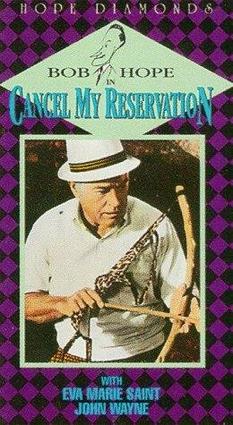
Cancel My Reservation is a 1972 American comedy film starring Bob Hope and Eva Marie Saint, and directed by Paul Bogart. The movie was Bob Hope's last of over 50 theatrical features as leading man, a screen run begun in 1938. It was also Eva Marie Saint's last film before she took a break from the big screen until 1986's Nothing in Common.

Thomas Forrest, Esq, also known as Thomas Forrest, Gentleman, in the Jamestown Colonists historic lists, was a gentleman financier in the Virginia Company. At that time, "gentleman" denoted a man of the lowest rank of the English gentry, standing below an esquire and above a yeoman. By definition, this category included the younger sons of the younger sons of peers, knights, and esquires in perpetual succession; thus the term captures the common denominator of gentility shared by both constituents of the English aristocracy: the peerage and the gentry.

Helen Anne Park, known as Anna Park or Ann Park, was born in 1769 at Moffat, Scotland. She was thought to have been the daughter of Joseph Park, an Edinburgh coachmaker, and Jean Dick. However, recent research has shown that she was actually the daughter of Walter Park and Elizabeth Blacklock. Margaret Ewing nee Park, a onetime landlady of 'The Globe', was her sister and she worked there as a barmaid. Anna bore the poet Robert Burns an illegitimate child named Elizabeth 'Betty' Burns as a result of an adulterous affair.
The Ludington family was an American family active in the fields of business, banking, and politics. Henry Ludington was active in the American Revolution, while Lewis, James, Nelson, and Harrison Ludington were involved in developing cities in the states of New York, Wisconsin, and Michigan. Henry founded Kent, New York, in 1775; Lewis founded Columbus, Wisconsin, in 1844; James founded Ludington, Michigan, in 1859; and Nelson founded Escanaba, Michigan, in 1862. Harrison was involved in the development of Milwaukee and was a governor of Wisconsin.

Leo Pierson (1888-1943) was an American film actor who was active during Hollywood's silent era. He was married to director and screenwriter Ruth Ann Baldwin.
The Melody Top Theatre was a musical theatre located in Milwaukee, Wisconsin and featured performances in the round. The theatre that was originally built as a circus-style tent is now defunct.














